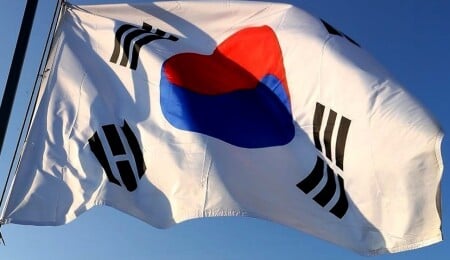S. Korea holds Snap Presidential Election After Yoon’s Ouster

South Koreans vote Tuesday in a snap presidential election, triggered by the December ouster of ex-President Yoon Suk Yeol over his brief declaration of martial law.

The election commission says voting began at 6 a.m. at 14,295 polling stations nationwide that will close at 8 p.m. Observers say the winner could emerge as early as midnight.
Nearly 29,000 police officers have been deployed across the country, where people will cast their ballots at around 14,295 polling stations.
The early election was triggered by the Dec. 14 impeachment of former President Yoon, following his unsuccessful attempt to impose martial law on Dec. 3. Polling was due within two months after South Korea's Constitutional Court upheld the parliament impeachment in April.
Yoon was otherwise supposed to serve as president until 2027.
More than 15 million, including overseas South Koreans, out of a total of 44.3 million eligible voters, have already cast their ballots in the two-day early voting period.
Surveys show that Lee Jae-myung, representing the main opposition Democratic Party, is leading the presidential race with close to 50% support.
Lee lost to Yoon in 2022 by a thin margin.
Kim Moon-soo from the ruling People Power Party is trailing behind with nearly 37% support.
Besides the two frontrunners, there are three other candidates in the race: Lee Jun-seok of the New Reform Party, Kwon Young-guk from the Democratic Labor Party, and an independent contender, Song Jin-ho.
This is the 21st presidential election in the country since its establishment in 1948.
The successful candidate will be sworn in soon after his win is confirmed as early as Wednesday morning.
President Lee Ju-ho is currently the deputy prime minister and education minister, promoted as interim president after resignations by former Prime Minister Han Duck-soo and former Finance Minister Choi Sang-mok.
This time, South Korea will not see a transition period of 60 days and instead, the new leader will quickly begin his term with fresh policy decisions expected on issues including U.S. tariffs, sluggish domestic economy, and all-time low ties with North Korea.
The elected president runs the administration in South Korea, while the 300-member parliament has the prerogative to veto any policy of the government. The opposition Democratic Party dominates the parliament with more than 190 seats.
Source: Daily Sabah












Yorumlar
Dikkat!
Suç teşkil edecek, yasadışı, tehditkar, rahatsız edici, hakaret ve küfür içeren, aşağılayıcı, küçük düşürücü, kaba, müstehcen, ahlaka aykırı, kişilik haklarına zarar verici ya da benzeri niteliklerde içeriklerden doğan her türlü mali, hukuki, cezai, idari sorumluluk içeriği gönderen Üye/Üyeler’e aittir.